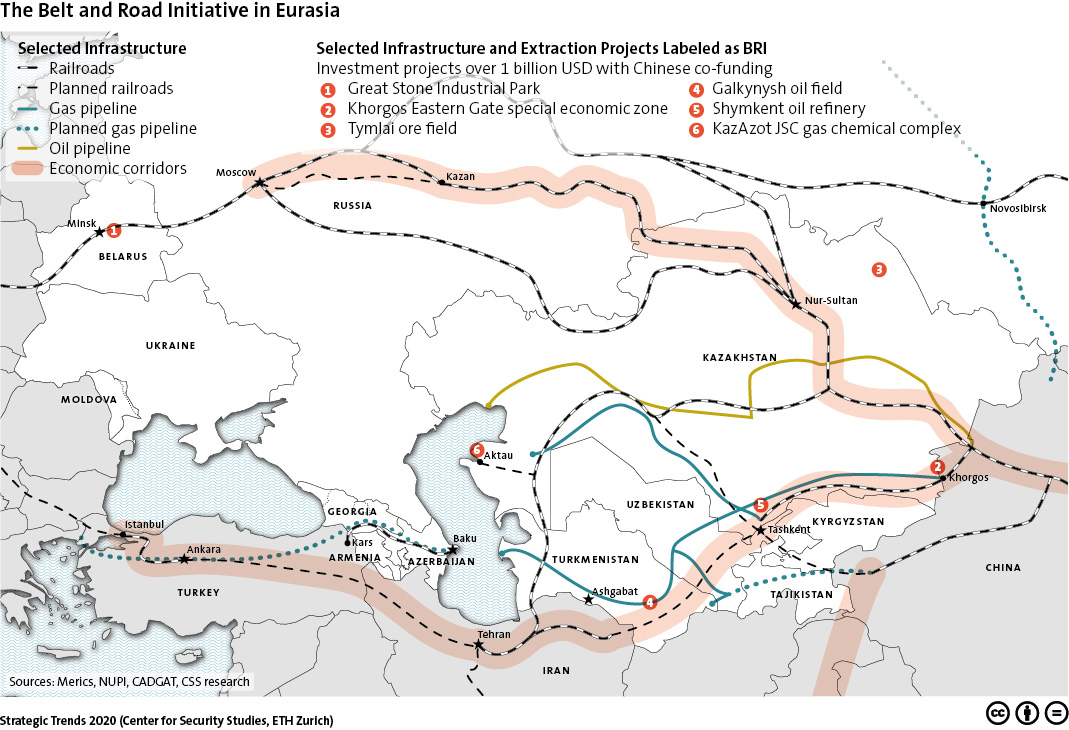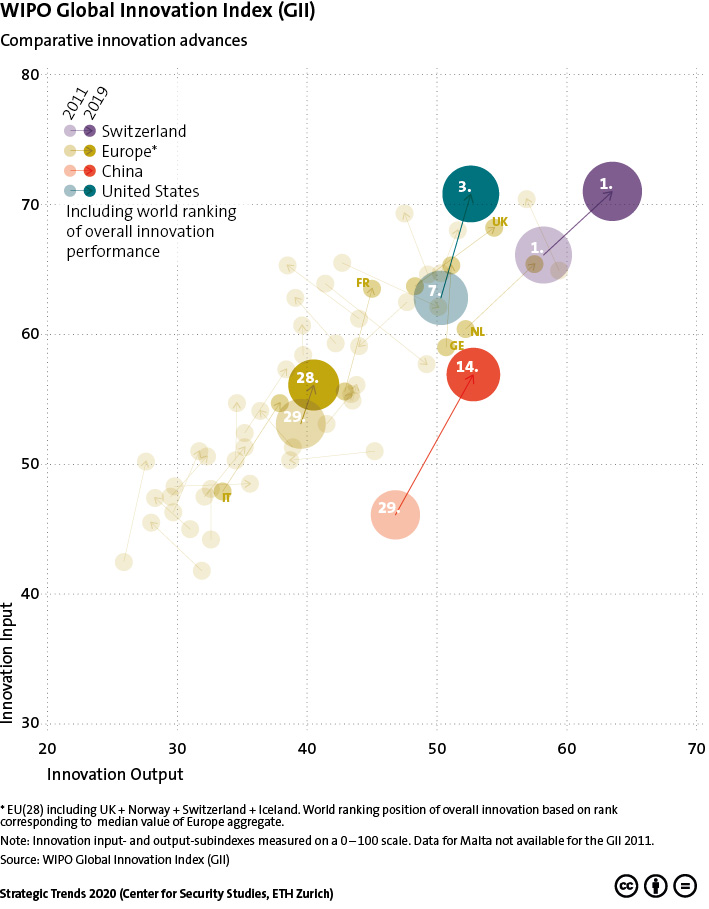
For transit between China and Europe, railway links are paramount. Albeit at least three times more expensive than shipping, overland rail transport can cut transportation times in half to around two weeks. This graphic maps several infrastructure and extraction projects, including railroads and pipelines, in Eurasia that have been labeled as part of the Belt and Road Initiative.
For an insight into the impact of China’s Belt and Road Initiative (BRI) on Eurasia, read Benno Zogg’s chapter in Strategic Trends 2020, which can be found here.


